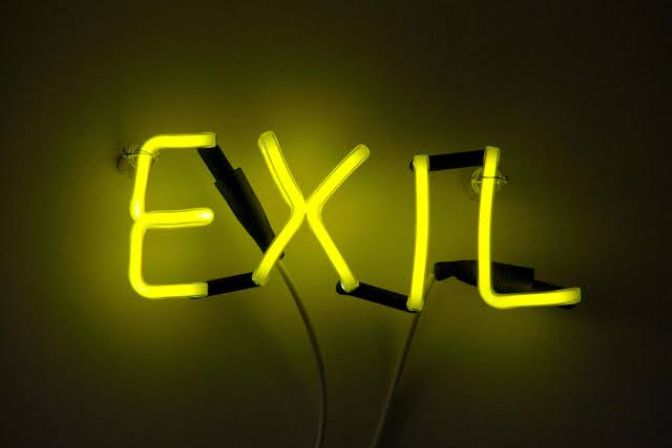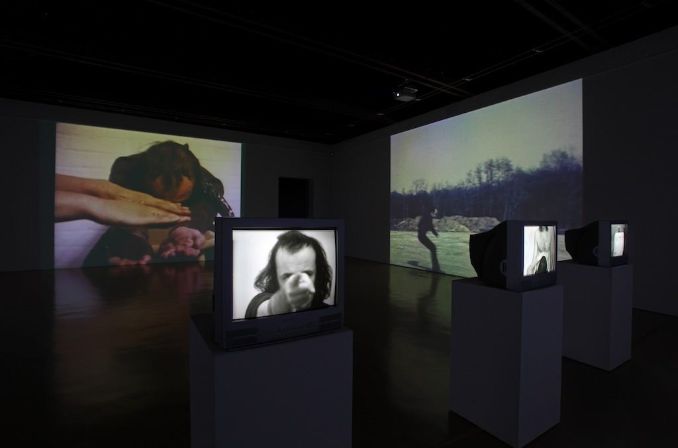Shubigi Rao (b. 1975, Mumbai) is an artist, writer, and filmmaker whose multidisciplinary practice spans histories and fictions, literature and violence, ecologies and natural history, libraries and knowledge hierarchies. Her films, art, and books critically, wittily, and poetically interrogate historical and contemporary crises—particularly those involving the displacement of people, languages, cultures, and bodies of knowledge. Rao’s immersive and tongue-in-cheek works range from creating archaeological archives of garbage and writing How To manuals for nation-building, to diagnosing digital malaise through metaphors like pixel dust and digital dandruff, building immortal jellyfish, and constructing pseudo-museums that regenerate and question systems of knowledge accumulation, erasure, and control.
In a talk introduced and moderated by Keith Whittle, Rao discussed her expansive artistic practice and her role as curator of the Kochi-Muziris Biennale, which ran from December 2022 to April 2023. Her wide-ranging interests—including archaeology, neuroscience, libraries, archives, histories, literature, violence, ecology, and natural history—deeply informed her curatorial approach. Rao emphasized inclusivity and the importance of amplifying underrepresented artists and practices. As curator, she also navigated the significant logistical and conceptual challenges of organizing a major international art exhibition in Kochi, a city noted for its cultural pluralism yet limited in terms of art infrastructure.
Rao provided a historical overview of the Kochi-Muziris Biennale—India’s first recurring international contemporary art exhibition. Initiated by the Government of Kerala’s Department of Cultural Affairs, it was conceived in partnership with artists Riyas Komu and Bose Krishnamachari to create a global art platform rooted in Kerala’s traditions of public engagement. The Biennale seeks to balance the interests of artists, institutions, and the public while exploring themes of cultural pluralism, globalization, and multiculturalism. In her curatorial role, Rao engaged critically with the Biennale’s self-organised autonomy, emphasizing its site-specific, participatory, and relational ethos.
The Biennale’s governing body was aware that Rao—an artist committed to disrupting entrenched zones of exclusion within contemporary art, geopolitics, and institutional systems—would use the platform to showcase practices that challenge the dominance of the global art market, particularly its North American and European centers. Her curatorship aimed to foreground local experimentation without relegating it to the periphery of an international framework. Rao’s recent solo exhibitions include Ngutu Kaka Gallery, New Zealand (2024); Rockbund Art Museum, China (2023–2024); and Rossi & Rossi Gallery, Hong Kong (2023). Upcoming exhibitions include the 16th Sharjah Biennale (2025) and a year-long solo at Bildmuseet, Sweden (March 2025 – February 2026). She represented Singapore at the Venice Biennale (Arte) 2022, and served as Artistic Director of the 2022–2023 Kochi-Muziris Biennale.
Rao’s publications include Pulp III: An Intimate Inventory of the Banished Book (2022), Pulp II: A Visual Bibliography of the Banished Book (2018), Written in the Margins (2017), Pulp: A Short Biography of the Banished Book (2016), Bastardising Biography (2005), three pseudo-encyclopaedias under the collective title No Cover No Colour (2006), and Useful Fictions (2013). History’s Malcontents: The Life and Times of S. Raoul (2013) chronicles a decade of work under her pseudonym, S. Raoul.
This talk was curated by Keith Whittle in partnership with ArtLink and hosted by Void Gallery, with support from Arts Council Ireland.










